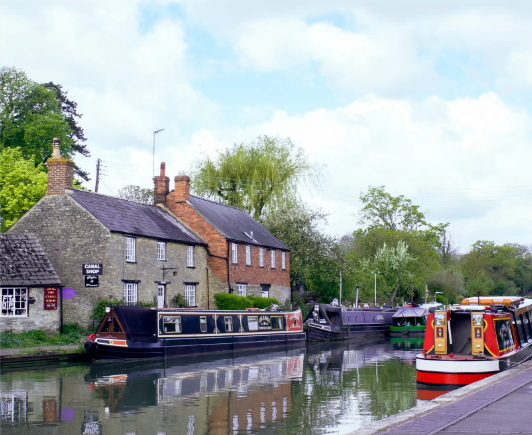Forms Of Mobile Residence
Park Homes, Houseboats, and other forms of Mobile Residence
With thanks to Alexander Brown of The Society of Will Writers.
A mobile home is a tricky area under succession law, and this article is only designed to take a glance into the dispensing of a mobile home by the Will, being that they are markedly distinct from what we may deem as more traditional property of bricks and mortar affixed to the land.
When referring to mobile homes, we are expressing residential assets that are capable of moving or being moved, better described as property that can be moved from a plot of land without causing damage to the structure, as set out in Caddick and another v Whitsand Bay Holiday Park Ltd [2015] UKUT 63 (LC).
So, considering this, how do we distinguish a mobile residence from a mere chattel under Section 55(1)(x) of the Administration of Estates Act 1925 and have it deemed a home?
‘Mobile’ homes qualifying as dwelling houses/residences.
This is where we will want to look just outside the remit of HMRC’s Inheritance Tax (IHT) guidance and instead at their Capital Gains Tax guidance seen in HMRC Manual CG64325:
“Where a caravan has become so affixed to the land as to become part of it, it will have ceased to be a chattel, and so any gain will not be exempt (…from CGT). However, in these circumstances, the caravan may be regarded as a dwelling-house, so private residence relief may be available.”
In this example, they refer to caravans. Still, the principle of becoming reasonably affixed to the land makes it possible, under the Caddick Case mentioned earlier, for them to be disconnected and moved without causing damage to the structure.
Mobile Chattel vs Residence
It means that a mobile chattel used for living is deemed a dwelling-house/residence where it is reasonably affixed to a portion of land, able to benefit from telephone, electrical, and water mains, etc., but equally capable of disconnecting from said portion of land and relocating without damage.

Tax implications & “Residential” Nil Rate Band (RNRB)
Moveable property is a chattel by nature as a moveable asset. So surely it can’t be deemed a Qualifying Residential Interest under HMRC’s guidance for RNRB.
It actually can qualify for tax relief; it needs to be deemed as a dwelling house as we have previously established, though HMRC’s IHT Manual does provide specific guidance to applying RNRB to a “dwelling-house” as seen here:
"Whilst the definition of ‘dwelling-house’ clearly includes a building of the fixed bricks-and-mortar type of property, where an asset, such as a static caravan or a houseboat, has demonstrably been used as an individual’s residence, you can accept it as being a dwelling-house for the purposes of the residence nil-rate band. Each case will depend on its facts."
So, while we can see that RNRB is available for many dwelling properties with a Qualifying Residential Interest, it does not act as a blanket cover for all variations of mobile residence. If one were to live out of a camper van that regularly travelled, failing the requirements for it to be deemed a dwelling house, it would likely not qualify as a residence despite being used effectively as a mobile home.
Gifting mobile residences or placing in a Trust

The law surrounding mobile residences is complex. This article does not cover the finer details of how the different pieces of legislation interact. We will focus on the Mobile Homes Acts of 1983 and 2013. By nature, a mobile home is not an interest in land but rather in a chattel/fixture upon that land. Thus, it is not gifted or placed into trust as you usually might. However, these chattels/fixtures can still be owned similarly to an interest in land, such as Joint Tenants or Tenants in Common, and are to be treated as such regarding severance.
There are already laws in place that allow for the protection of someone else’s interest in the occupation of the property; an example of this is seen in Sections 3 and 3(B) of the Mobile Homes Act 1983, which allows for the surviving partner or spouse to have a right to reside in the property after the owner’s death, or any right to occupy the property being granted under the terms of a Will or intestacy of the deceased owner.
Please note that an agreement between the landowner and the testator (the Writer of the Will) may preclude such a transfer of rights to use the land to enjoy the chattel. How do we make a gift or trust of the mobile home?
- Have it deemed as a dwelling house
- Check the agreement between the landowner and the testator and see if the survivor can have a right to occupy.
- Understand if the interest in the mobile home is either Joint Tenancy or Tenants in Common (Joint ownership over chattels, not land).
- Provide provision for how this gift is to be distributed as one might but separate it as a specific gift which is not to be distributed per the testator’s other chattels.
We understand that this niche area of Will Writing is complex; however, because Fern Wills & LPAs are members of The Society of Will Writers, we have access to a Specialist Technical Team if we need assistance with a case containing a ‘mobile home’.


